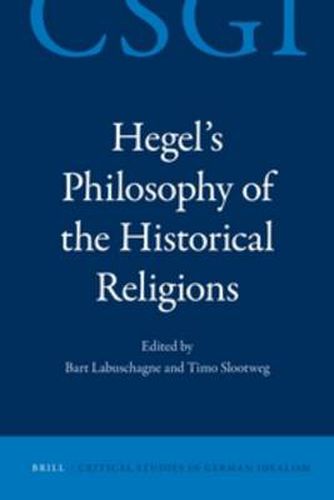Readings Newsletter
Become a Readings Member to make your shopping experience even easier.
Sign in or sign up for free!
You’re not far away from qualifying for FREE standard shipping within Australia
You’ve qualified for FREE standard shipping within Australia
The cart is loading…






No topic ever disquieted Hegel more than that of Religion. It haunted him, and he wrestled with it all during his life: from his brilliant youthful writings on spirit of Judaism and Christianity, up until the Lectures on the Philosophy of Religion of 1831. Of the ‘Determinate Religions’, Hegel wrote many profound and exhilarating philosophical interpretations. This volume brings together a collection of critical essays that discuss Hegel’s relation to each of these historical Religions, including the Islam, and (of course) the ‘revealed’ religion of Christianity (Catholicism and Protestantism). All chapters aim to shed light on the intriguing development of Hegel’s conception of the dialectic of Religion. Taken together, they develop a comprehensive view of Hegel’s philosophy of the historical Religions. His grandiose and provocative perceptions and ‘thought-scapes’ enhance the appetite for the - much needed - philosophical appreciation of the phenomenon of religion.
$9.00 standard shipping within Australia
FREE standard shipping within Australia for orders over $100.00
Express & International shipping calculated at checkout
No topic ever disquieted Hegel more than that of Religion. It haunted him, and he wrestled with it all during his life: from his brilliant youthful writings on spirit of Judaism and Christianity, up until the Lectures on the Philosophy of Religion of 1831. Of the ‘Determinate Religions’, Hegel wrote many profound and exhilarating philosophical interpretations. This volume brings together a collection of critical essays that discuss Hegel’s relation to each of these historical Religions, including the Islam, and (of course) the ‘revealed’ religion of Christianity (Catholicism and Protestantism). All chapters aim to shed light on the intriguing development of Hegel’s conception of the dialectic of Religion. Taken together, they develop a comprehensive view of Hegel’s philosophy of the historical Religions. His grandiose and provocative perceptions and ‘thought-scapes’ enhance the appetite for the - much needed - philosophical appreciation of the phenomenon of religion.